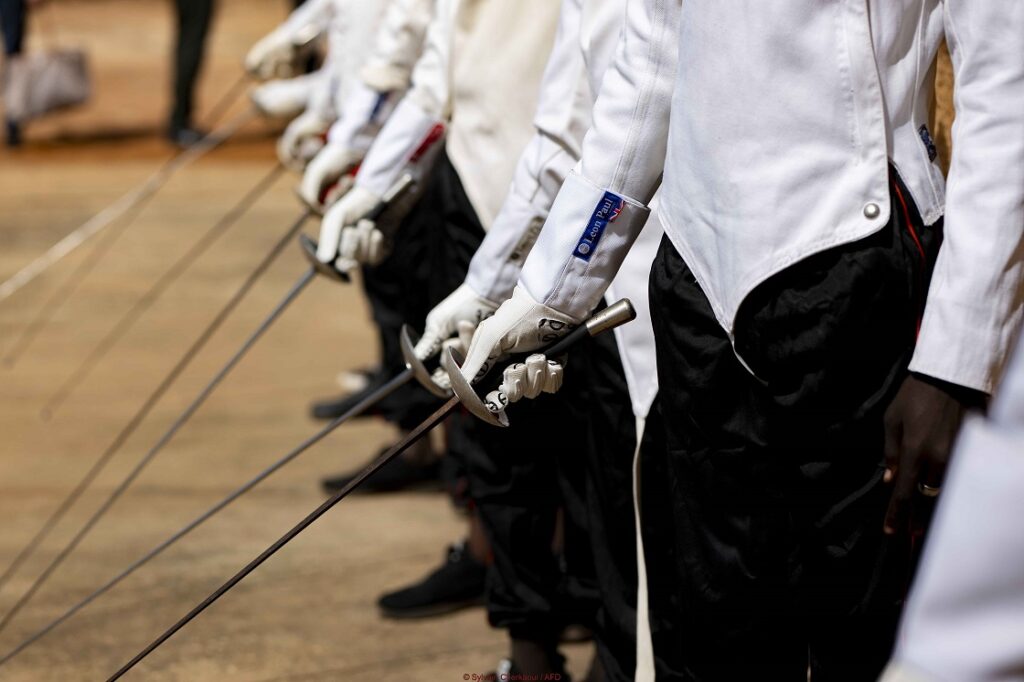In Thiès, just outside of Dakar, outside the walls of the correctional facility where they spend most of their time, young Senegalese, clad in the requisite padded uniform and headgear, and brandishing the long, narrow fencing sword, lunge, parry and counter-attack, under the watchful eye of their instructor.
Twice weekly, these fencing bouts are not only a momentary respite from the confines of prison, but also a valuable outlet for harnessing their energy and venting their frustrations. The sessions also introduce them to the fundamentals of this sport, and along the way, the students learn values like respect, discipline or even humility. Fair play and integrity are also the hallmarks of the sport, along with team spirit and solidarity.
A tested and proven method
The program’s track record speaks for itself. “We’ve witnessed a radical change in the young people involved in acts of violence or crime,” says Nelly Robin, President of Pour le sourire d’un enfant (for a Child’s Smile) and Research Director at the Center for Populations and Development.
She joined forces with a team of French and Senegalese scientists together with the Senegalese penitentiary authorities, to start exploring the concept of “Fencing and Restorative Justice” more than a decade ago.
Since 2015, the program has reached out to more than 600 children and teenagers. As for the reoffending rate after wielding the foil? “0 per cent,” says Robin.
See also: Sports & Development: The Key to Success
Persuaded by the success of Robin’s team, the Senegalese government has called for the program to be rolled out nationwide, with specialized educators from the Ministry of Justice and prison officers being trained in the “Fencing and Restorative Justice” method.
The initiative is tackling the persistently high incidence of juvenile delinquency, coupled with lack of mental health resources for young Senegalese, whose life trajectories are often fraught with extreme hardship and instability.
Hopes for rehabilitation through sports
The program doesn’t just deal with delinquency. It aims to sow the seeds of future champions. “We are keen to bring to Senegal’s national team young people who have discovered fencing through our method,” says Nelly Robin, who has made available the fencing master coordinating the training program so he can in turn train teachers who will become coaches on the national team.
This demonstrates that fencing can be a powerful social rehabilitation and reintegration mechanism for young inmates. Indeed, it offers an alternative to deprivation of liberty, while breaking the cycle of recidivism,” she concluded. Financially sponsored by AFD since 2022 under its CSO grant scheme, this method was also a double winner in the Global Sports Week Awards in 2021.
Source link : https://www.afd.fr/en/actualites/swordplay-sport-and-deal-delinquency-senegal
Author :
Publish date : 2024-07-26 07:00:00
Copyright for syndicated content belongs to the linked Source.
